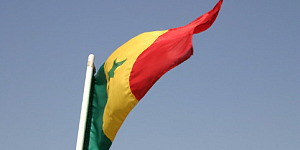Moody's Investors Service ("Moody's") has affirmed the Government of Senegal's Ba3 long-term issuer ratings and changed the outlook to stable from negative. The rating on Senegal's foreign-currency senior unsecured debt has also been affirmed at Ba3. The short-term rating was affirmed at Not Prime (NP).
The outlook change to stable from negative reflects an increased likelihood in Moody's view that the government's debt burden will stabilise, and in the absence of new significant shocks, eventually embark on a downward trajectory over the coming years. In particular, as energy projects come on stream and significantly bolster economic growth, Senegal benefits from some resilience to the global implications of Russia's invasion of Ukraine. Fiscal consolidation will be a protracted process in Moody's view given elevated spending pressures, but will be supported by ongoing IMF arrangements as well as efforts to strengthen domestic revenue generation.
The affirmation reflects the view that Senegal's credit profile remains consistent with a Ba3 rating. Membership in the West African Economic and Monetary Union (WAEMU) significantly reduces risks arising from Senegal's high levels of foreign-currency debt and mitigates risks stemming from sizeable current account deficits. Notwithstanding a strong growth outlook, wealth and economic competitiveness remain low in global terms and relative to rating peers. Senegal's hydrocarbon prospects support the economy's long-term growth potential, but the government's gas-to-power strategy also presents the potential for higher than anticipated public spending.
Senegal's local and foreign currency country ceilings remain unchanged at Baa2 and Baa3, respectively. The local currency country ceiling is four notches above the sovereign rating to take into account the moderate footprint of the government in the economy, the relative strength of the institutional framework, as well as the mitigating impact of Senegal's WAEMU membership on external imbalances. The foreign currency country ceiling maintains a one-notch gap to the local currency country ceiling to reflect Moody's assessment of limited transfer and convertibility risks due to the French Treasury guarantee of the peg between the CFA franc and the euro.







































